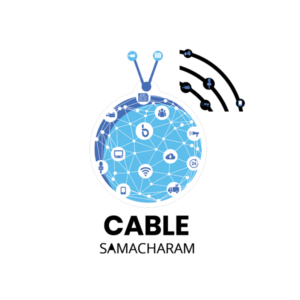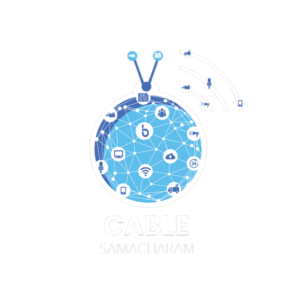Amidst growing concerns around lack of transparency, accountability and rights of users related to digital media and after elaborate consultation with the public and stakeholders, the Information Technology (Intermediary Guidelines and Digital Media Ethics Code) Rules 2021 has been framed in exercise of powers under section 87(2) of the Information Technology Act, 2000and in supersession of the earlier Information Technology (Intermediary Guidelines) Rules2021.
Background:
The Digital India programme has now become a movement which is empowering common Indians with the power of technology. The extensive spread of mobile phones, Internet etc. has also enabled many social media platforms to expand their footprints in India. Common people are also using these platforms in a very significant way. Some portals, which publish analysis about social media platforms and which have not been disputed, have reported the following numbers as user base of major social media platforms in India:
We have WhatsApp users: 53 Crore;YouTube users: 44.8 Crore; Facebook users: 41 Crore; Instagram users: 21 Crore; Twitter users: 1.75 Crore
Proliferation of social media,on one hand empowers the citizens then on the other hand gives rise to some serious concerns and consequences which have grown manifold in recent years. These concerns have been raised from time to time in various forums including in the Parliament and its committees, judicial orders and in civil society deliberations in different parts of country. Such concerns are also raised all over the world and it is becoming an international issue.
Of late, some very disturbing developments are observed on the social media platforms. Persistent spread of fake news has compelled many media platforms to create fact-check mechanisms. Rampant abuse of social media to share morphed images of women and contents related to revenge porn have often threatened the dignity of women. Misuse of social media for settling corporate rivalries in blatantly unethical manner has become a major concern for businesses. Instances of use of abusive language, defamatory and obscene contents and blatant disrespect to religious sentiments through platforms are growing.
It was found that currently there is no robust complaint mechanism wherein the ordinary users of social media and OTT platforms can register their complaint and get it redressed within defined timeline. Lack of transparency and absence of robust grievance redressal mechanism have left the users totally dependent on the whims and fancies of social media platforms. Often it has been seen that a user who has spent his time, energy and money in developing a social media profile is left with no remedies in case that profile is restricted or removed by the platform without giving any opportunity to be heard.
Salient Features
Due Diligence To Be Followed By Intermediaries: The Rules prescribe due diligence that must be followed by intermediaries, including social media intermediaries. In case, due diligence is not followed by the intermediary, safe harbour provisions will not apply to them.
Grievance Redressal Mechanism: The Rules seek to empower the users by mandating the intermediaries, including social media intermediaries, to establish a grievance redressal mechanism for receiving resolving complaints from the users or victims. Intermediaries shall appoint a Grievance Officer to deal with such complaints and share the name and contact details of such officer. Grievance Officer shall acknowledge the complaint within twenty four hours and resolve it within fifteen days from its receipt.
Ensuring Online Safety and Dignity of Users, Specially Women Users: Intermediaries shall remove or disable access within 24 hours of receipt of complaints of contents that exposes the private areas of individuals, show such individuals in full or partial nudity or in sexual act or is in the nature of impersonation including morphed images etc. Such a complaint can be filed either by the individual or by any other person on his/her behalf.
Additional Due Diligence to Be Followed by Significant Social Media Intermediary:
Appoint a Chief Compliance Officer who shall be responsible for ensuring compliance with the Act and Rules. Such a person should be a resident in India.
Appoint a Nodal Contact Person for 24×7 coordination with law enforcement agencies. Such a person shall be a resident in India.
Appoint a Resident Grievance Officer who shall perform the functions mentioned under Grievance Redressal Mechanism. Such a person shall be a resident in India.
Publish a monthly compliance report mentioning the details of complaints received and action taken on the complaints as well as details of contents removed proactively by the significant social media intermediary.
Significant social media intermediaries providing services primarily in the nature of messaging shall
Significant social media intermediary shall have a physical contact address in India published on its website or mobile app or both.
Voluntary User Verification Mechanism: Users who wish to verify their accounts voluntarily shall be provided an appropriate mechanism to verify their accounts and provided with demonstrable and visible mark of verification.
Giving Users An Opportunity to Be Heard: In cases where significant social media intermediaries removes or disables access to any information on their own accord, then a prior intimation for the same shall be communicated to the user who has shared that information with a notice explaining the grounds and reasons for such action. Users must be provided an adequate and reasonable opportunity to dispute the action taken by the intermediary.
Removal of Unlawful Information:An intermediary upon receiving actual knowledge in the form of an order by a court or being notified by the Appropriate Govt. or its agencies through authorized officer should not host or publish any information which is prohibited under any law in relation to the interest of the sovereignty and integrity of India, public order, friendly relations with foreign countries etc.
The Rules will come in effect from the date of their publication in the gazette, except for the additional due diligence for significant social media intermediaries, which shall come in effect 3 months after publication of these Rules.
Digital Media Ethics Code Relating to Digital Media and OTT Platforms to Be Administered by Ministry of Information and Broadcasting:
There have been widespread concerns about issues relating to digital contents both on digital media and OTT platforms. Civil Society, film makers, political leaders including Chief Minister, trade organizations and associations have all voiced their concerns and highlighted the imperative need for an appropriate institutional mechanism. The Government also received many complaints from civil society and parents requesting interventions. There were many court proceedings in the Supreme Court and High Courts, where courts also urged the Government to take suitable measures.
Since the matter relates to digital platforms, therefore, a conscious decision was taken that issues relating to digital media and OTT and other creative programmes on Internet shall be administered by the Ministry of Information and Broadcasting but the overall architecture shall be under the Information Technology Act, which governs digital platforms.
Consultations:
Ministry of Information and Broadcasting held consultations in Delhi, Mumbai and Chennai over the last one and half years wherein OTT players have been urged to develop “self-regulatory mechanism”. The Government also studied the models in other countries including Singapore, Australia, EU and UK and has gathered that most of them either have an institutional mechanism to regulate digital content or are in the process of setting-up one.
The Rules establish a soft-touch self-regulatory architecture and a Code of Ethics and three tier grievance redressal mechanism for news publishers and OTT Platforms and digital media.
Notified under section 87 of Information Technology Act, these Rules empower the Ministry of Information and Broadcasting to implement Part-III of the Rules which prescribe the following:
Code of Ethicsfor online news, OTT platforms and digital media:This Code of Ethics prescribe the guidelines to be followed by OTT platforms and online news and digital media entities.
Self-Classification of Content: The OTT platforms, called as the publishers of online curated content in the rules, would self-classify the content into five age based categories- U (Universal), U/A 7+, U/A 13+, U/A 16+, and A (Adult). Platforms would be required to implement parental locks for content classified as U/A 13+ or higher, and reliable age verification mechanisms for content classified as “A”. The publisher of online curated content shall prominently display the classification rating specific to each content or programme together with a content descriptor informing the user about the nature of the content, and advising on viewer description (if applicable) at the beginning of every programme enabling the user to make an informed decision, prior to watching the programme.
Publishers of news on digital media would be required to observe Norms of Journalistic Conduct of the Press Council of India and the Programme Code under the Cable Television Networks Regulation Act thereby providing a level playing field between the offline (Print, TV) and digital media.
A three-level grievance redressal mechanism has been established under the rules with different levels of self-regulation.
Level-I: Self-regulation by the publishers;
Level-II: Self-regulation by the self-regulating bodies of the publishers;
Level-III: Oversight mechanism.
Self-regulation by the Publisher: Publisher shall appoint a Grievance Redressal Officer based in India who shall be responsible for the redressal of grievances received by it. The officer shall take decision on every grievance received by it within 15 days.
Self-Regulatory Body: There may be one or more self-regulatory bodies of publishers. Such a body shall be headed by a retired judge of the Supreme Court, a High Court or independent eminent person and have not more than six members. Such a body will have to register with the Ministry of Information and Broadcasting. This body will oversee the adherence by the publisher to the Code of Ethics and address grievances that have not be been resolved by the publisher within 15 days.
Oversight Mechanism: Ministry of Information and Broadcasting shall formulate an oversight mechanism. It shall publish a charter for self-regulating bodies, including Codes of Practices. It shall establish an Inter-Departmental Committee for hearing grievances.
























